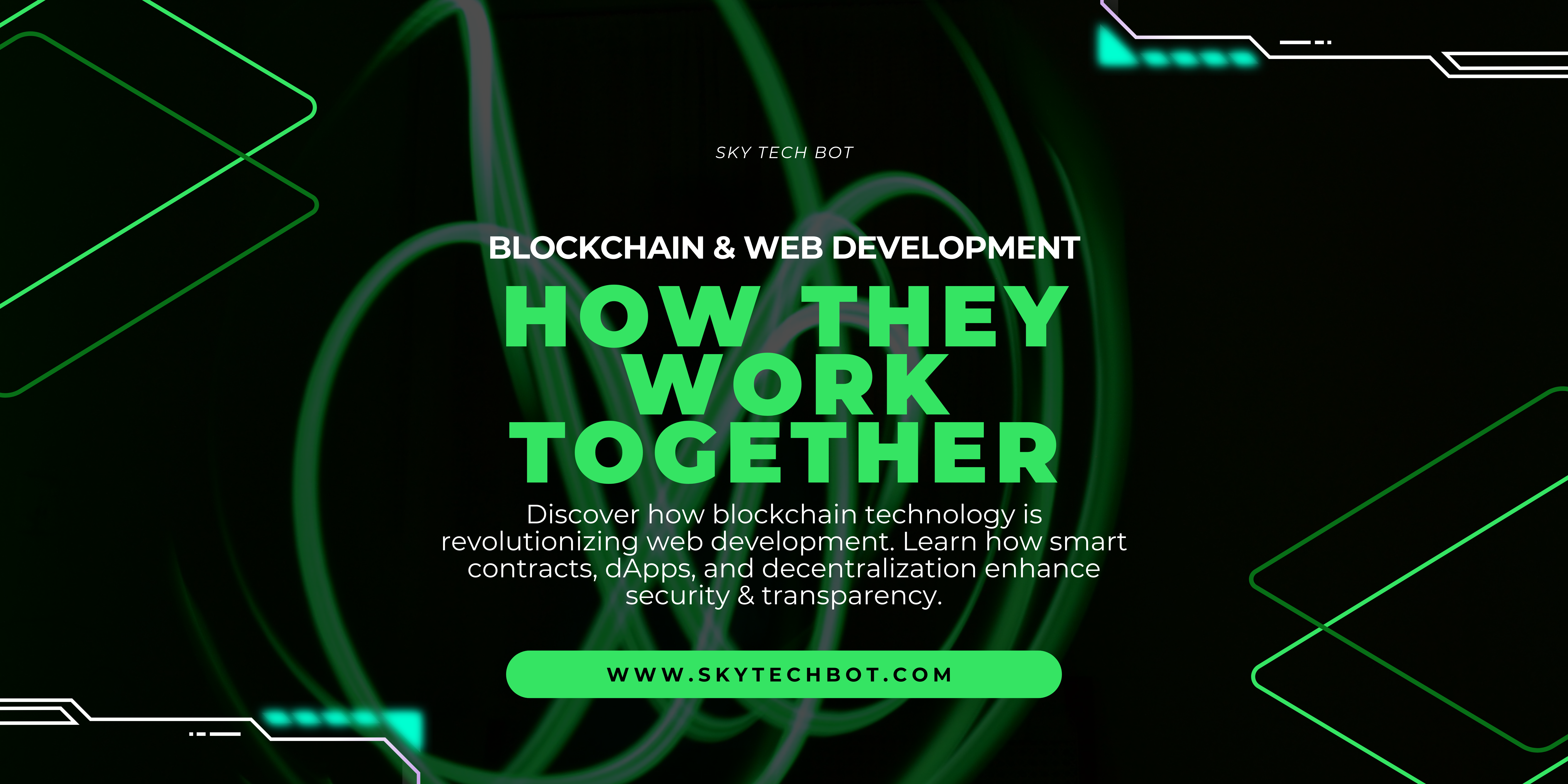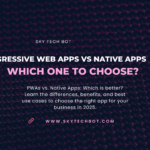Blockchain technology is transforming various industries, and web development is no exception. By integrating blockchain with web applications, businesses can enhance security, transparency, and decentralization.
But how exactly does blockchain impact web development? In this guide, we’ll explore the synergy between blockchain and web technologies, discuss real-world use cases, and explain how developers can integrate blockchain into modern web applications.
What is Blockchain?
Blockchain is a decentralized digital ledger that records transactions across multiple computers. It ensures transparency, security, and immutability. Unlike traditional centralized databases, blockchain is:
- Decentralized: No single authority controls the data.
- Immutable: Transactions cannot be altered or deleted.
- Secure: Uses cryptographic encryption for data protection.
How Blockchain Enhances Web Development
Web developers are integrating blockchain technology to build decentralized applications (dApps), improve data security, and eliminate third-party dependencies. Here’s how blockchain benefits web development:
Enhanced Security & Data Integrity
Traditional web applications store user data in centralized databases, making them vulnerable to cyberattacks. Blockchain provides:
- Decentralized storage to prevent single-point failures.
- Encryption techniques for secure transactions.
- Immutability, ensuring data cannot be altered.
Smart Contracts for Automation
Smart contracts are self-executing agreements written in code. They help developers automate transactions and enforce agreements without intermediaries. Use cases include:
- Automated payments for eCommerce websites.
- Secure contract execution in SaaS applications.
- Decentralized identity verification.
Transparency & Trust
Blockchain’s public ledger ensures transparency, making it ideal for applications like:
- Supply chain tracking.
- Voting systems.
- Decentralized finance (DeFi) applications.
Decentralized Hosting & Storage
Blockchain-based hosting solutions eliminate reliance on centralized servers. Examples include:
- IPFS (InterPlanetary File System): Decentralized web hosting.
- Arweave: Permanent data storage for dApps.
- Ethereum Swarm: Peer-to-peer storage.
How to Integrate Blockchain in Web Development
Developers can incorporate blockchain in web applications using various frameworks and APIs. Here’s a step-by-step approach:
Choose a Blockchain Platform
Popular blockchain platforms for web development include:
- Ethereum: Best for dApps and smart contracts.
- Hyperledger Fabric: Ideal for enterprise solutions.
- Binance Smart Chain (BSC): Low-cost alternative for DeFi projects.
Use Blockchain APIs & SDKs
Developers can leverage APIs to integrate blockchain features:
- Infura: Provides Ethereum and IPFS access.
- Moralis: Web3 backend services for dApps.
- Alchemy: Blockchain infrastructure for developers.
Implement Web3.js or Ethers.js
Web3.js and Ethers.js enable JavaScript-based blockchain interactions:
- Connect web applications to Ethereum blockchain.
- Interact with smart contracts.
- Handle cryptocurrency transactions.
Secure User Authentication with Blockchain
Decentralized authentication improves security. Tools like:
- MetaMask: Enables blockchain-based logins.
- Civic: Decentralized identity verification.
Real-World Use Cases of Blockchain in Web Development
Several industries are leveraging blockchain-powered web applications:
- eCommerce: Secure payments & smart contracts.
- Healthcare: Patient record management.
- Finance: Decentralized lending and trading.
- Gaming: NFT-based assets and transactions.
Need Help Integrating Blockchain into Your Web App?
Our experts specialize in blockchain-powered web applications. Contact us today to explore blockchain solutions for your business!
Frequently Asked Questions (FAQs)
1. Can blockchain improve website security?
Yes, blockchain decentralizes data storage and encrypts transactions, making it highly secure.
2. How do smart contracts work in web development?
Smart contracts automate transactions and agreements without intermediaries, improving efficiency.
3. What is a decentralized web application (dApp)?
dApps run on blockchain networks instead of centralized servers, offering greater transparency and security.
4. Which blockchain is best for web applications?
Ethereum is the most popular choice due to its robust smart contract capabilities.
Interested in blockchain-powered web solutions? Let’s build your next project!


